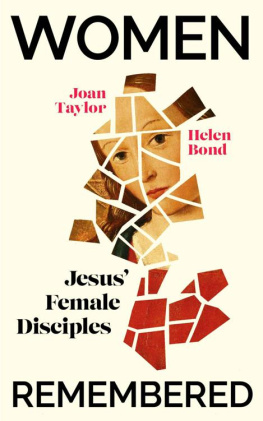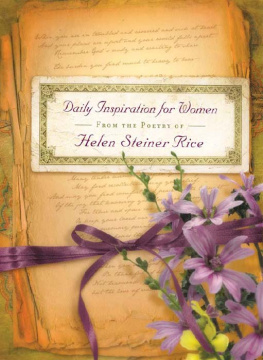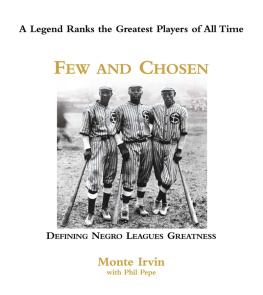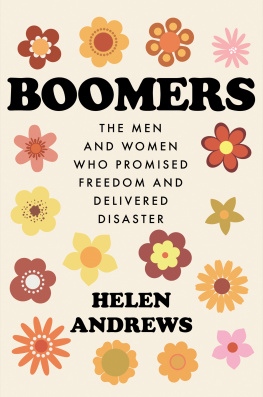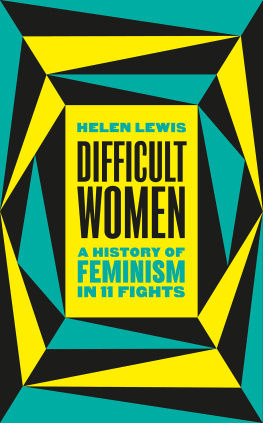
The Kentucky Bicentennial Bookshelf
Sponsored by
KENTUCKY HISTORICAL EVENTS CELEBRATION COMMISSION
KENTUCKY FEDERATION OF WOMENS CLUBS
and Contributing Sponsors
AMERICAN FEDERAL SAVINGS & LOAN ASSOCIATION
ARMCO STEEL CORPORATION, ASHLAND WORKS
A. ARNOLD & SON TRANSFER & STORAGE CO., INC. / ASHLAND OIL, INC.
BAILEY MINING COMPANY, BYPRO, KENTUCKY / BEGLEY DRUG COMPANY
J. WINSTON COLEMAN, JR. / CONVENIENT INDUSTRIES OF AMERICA, INC.
IN MEMORY OF MR. AND MRS. J. SHERMAN COOPER BY THEIR CHILDREN
CORNING GLASS WORKS FOUNDATION / MRS. CLORA CORRELL
THE COURIER-JOURNAL AND THE LOUISVILLE TIMES
COVINGTON TRUST & BANKING COMPANY
MR. AND MRS. GEORGE P. CROUNSE / GEORGE E. EVANS, JR.
FARMERS BANK & CAPITAL TRUST COMPANY / FISHER-PRICE TOYS, MURRAY
MARY PAULINE FOX, M.D., IN HONOR OF CHLOE GIFFORD
MARY A. HALL, M.D., IN HONOR OF PAT LEE,
JANICE HALL & AND MARY ANN FAULKNER
OSCAR HORNSBY INC. / OFFICE PRODUCTS DIVISION IBM CORPORATION
JERRYS RESTAURANTS / ROBERT B. JEWELL
LEE S. JONES / KENTUCKIANA GIRL SCOUT COUNCIL
KENTUCKY BANKERS ASSOCIATION / KENTUCKY COAL ASSOCIATION, INC.
THE KENTUCKY JOCKEY CLUB, INC. / THE LEXINGTON WOMANS CLUB
LINCOLN INCOME LIFE INSURANCE COMPANY
LORILLARD A DIVISION OF LOEWS THEATRES, INC.
METROPOLITAN WOMANS CLUB OF LEXINGTON / BETTY HAGGIN MOLLOY
MUTUAL FEDERAL SAVINGS & LOAN ASSOCIATION
NATIONAL INDUSTRIES, INC. / RAND MCNALLY & COMPANY
PHILIP MORRIS, INCORPORATED / MRS. VICTOR SAMS
SHELL OIL COMPANY, LOUISVILLE
SOUTH CENTRAL BELL TELEPHONE COMPANY
SOUTHERN BELLE DAIRY CO. INC.
STANDARD OIL COMPANY (KENTUCKY)
STANDARD PRINTING CO., H. M. KESSLER, PRESIDENT
STATE BANK & TRUST COMPANY, RICHMOND
THOMAS INDUSTRIES INC. / TIP TOP COAL CO., INC.
MARY L. WISS, M.D. / YOUNGER WOMANS CLUB OF ST. MATTHEWS
WOMEN
IN KENTUCKY
HELEN DEISS IRVIN
Research for The Kentucky Bicentennial Bookshelf is assisted by a grant from the National Endowment for the Humanities. Views expressed in the Bookshelf do not necessarily represent those of the Endowment.
Copyright 1979 by The University Press of Kentucky
Paperback edition 2009
The University Press of Kentucky
Scholarly publisher for the Commonwealth,
serving Bellarmine University, Berea College, Centre
College of Kentucky, Eastern Kentucky University,
The Filson Historical Society, Georgetown College,
Kentucky Historical Society, Kentucky State University,
Morehead State University, Murray State University,
Northern Kentucky University, Transylvania University,
University of Kentucky, University of Louisville,
and Western Kentucky University.
All rights reserved.
Editorial and Sales Offices: The University Press of Kentucky
663 South Limestone Street, Lexington, Kentucky 40508-4008
www.kentuckypress.com
Cataloging-in-Publication Data is available from the Library of Congress.
ISBN 978-0-8131-9345-8 (pbk: acid-free paper)
This book is printed on acid-free recycled paper meeting the requirements of the American National Standard for Permanence in Paper for Printed Library Materials.
Manufactured in the United States of America.
Member of the Association of
American University Presses
Contents
For my grandmother, a strong woman:
BESSIE GRAHAM HALLIDAY DAVENPORT
1865-1947
Preface
WHY A BOOK about women in Kentucky? Because their past has been largely ignored. My thesis is simple: women were there, their lives are worth looking at, and often they contributed more than they are given credit for.
In his New Viewpoints in American History, Arthur M. Schlesinger observed:
An examination of the standard histories of the United States and of the history textbooks in use in our schools raises the pertinent question whether women have ever made any contributions to American national progress that are worthy of record. If the silence of the historians is to mean anything, it would appear that one-half of our population have been negligible factors in our countrys history.
So it has been, with few exceptions, in Kentucky history. Obviously, a small book dealing with a large subject cannot be comprehensive. Choices had to be made. I tried to make them in such a way as to provide some flavor of these invisible lives.
Acknowledgments
I APPRECIATE THE information and cooperation given me by Laura Kinkead Walton, formerly of Planned Parenthood of Lexington; the late Jean Brandeis Tachau, formerly of the Kentucky Birth Control League, Louisville; Jan Harmon of Planned Parenthood of Lexington; Ida Gorshkin of the Womens Trade Union Studies Program of Cornell University, New York City; Arthur Flandreau, head librarian, Berea College; John May, head librarian, Centre College; S. Cecil Herr Perry, Colonial Dames of America; Ruth Davenport Deiss, United Daughters of the Confederacy, and Caufield and Shook, photographers.
Special thanks go to Roemel Henry, archivist emeritus of Transylvania University; Mary Schwalst, former curator of Liberty Hall, Frankfort; James C. Anderson and David Horvath, University of Louisville Photographic Archives; William Marshall and Terry Birdwhistell of Special Collections, King Library, University of Kentucky; Florence Shelby Cantrill of Lexington for her valuable information and insight; Professor George C. Wright of the University of Kentucky Department of History for his helpful criticism; and Professors Suzanne and Richard Lowitt for their interest and advice.
1
THE SETTLERS
Whilst young Miss Woods dispatched [the Indians] life, the Old Lady Barrd the Door kept it shut.
Journal, 1782
ALTHOUGH WOMEN SETTLERS came to Kentucky to stay in 1775, they are usually ignored in histories, as if they were invisible or their lives of little interest. They may be depicted, if at all, as passive and fearful. By these timid qualities they are defined as harbingers of a more refined civilizationin contrast to that of the Indians who used Kentucky as a hunting ground. But to learn of a woman migrant on horseback fording a swift river, one child in her arms and one hanging on behind her, to find other women improvising a substitute for flax, defending a fort under siege, or fighting off Indian attackers, is to see women as active participants in the rough, precarious life of the settlements. Visible or not, refined or not, women helped settle the Kentucky frontier. And in doing so, many showed resourcefulness and courage that are seldom remembered.









